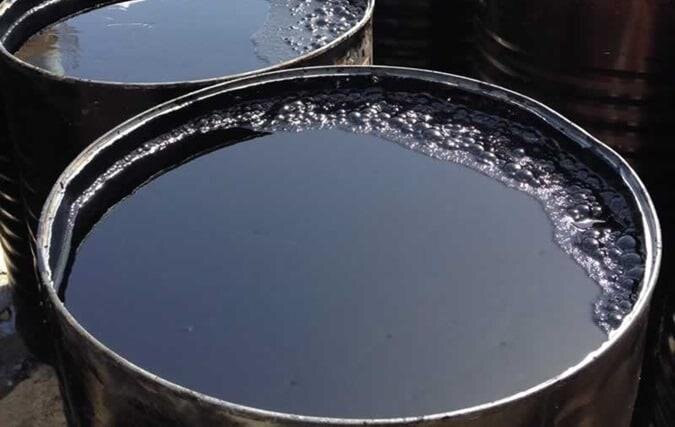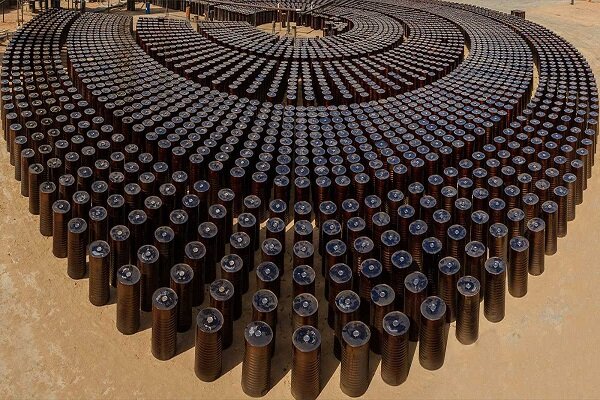It can be termed as the building block of the pavements without which all the pavement materials would behave independently and thus will be deemed useless.
Almost ninety percent of bitumen is used in road construction by bitumen suppliers. It is usually available in dark colors ranging from brown to black. The main purpose of bitumen in flexible pavements is to strongly bind and hold the other pavement components together and provide a smooth and leveled surface for the moving vehicles. Bitumen is a naturally occurring material and is found in large quantities in the solid or semi-solid forms of petroleum. It is also manufactured artificially in vast amounts globally. Bitumen mixed with some other materials has always been used as a sealant and adhesive material over the ages. It was also widely used in the waterproofing of boats and ships as it is insoluble in water. The highest applications of bitumen are found in the construction field for the construction of roads, airports etc., in the hydraulic field for the construction of water tanks, dams, bridges etc., is also used in battery making, tyre making and the thermal and acoustic insulation purposes. Types of Bituminous Materials:
Depending upon the temperature and other factors various types of bitumen are found and used throughout the world.
Cutback Bitumen: Cut-back bitumens are those which are prepared with the addition of a volatile to reduce the thickness of the binder.
Fluxed Bitumen: Fluxed bitumens are those bitumen that are prepared by the addition of relatively non-volatile oils to reduce the viscosity of the binder
Modified Bitumen: Modified bituminous binder are those whose properties such as cohesive strength, adhesive property, elasticity or viscosity have been modified by the use of one or combined chemical agents.
Different Types of Bitumen, their Properties and Uses
There are different types of bitumen available with different properties, specifications and uses based on the requirements of the consuming industry. To buy bitumen one should consider these matters.
The specification of bitumen also shows variation with the safety, solubility, physical properties, and durability.
To understand the performance of the bitumen when it is on service, the design of the physical properties of the material is highly essential. The standard testing methods are carried out to grade bitumen.
Types of Bitumen and their Properties and Uses
The bitumen can be classified into the following grade types:
- Penetration Grade Bitumen (bitumen 60/70)
- Oxidized Bitumen Grades
- Cut Back Bitumen
- Bitumen Emulsion
- Polymer Modified Bitumen

Penetration Grade Bitumen
The penetration grade bitumen is refinery bitumen that is manufactured at different viscosities. The penetration test is carried out to characterize the bitumen, based on the hardness. Thus, it has the name penetration bitumen.
The penetration bitumen grades range from 15 to 450 for road bitumen. But the most commonly used range is 25 to 200. This is acquired by controlling the test carried out i.e. the distillation process.
The partial control of fluxing the residual bitumen with the oils can help in bringing the required hardness. The table below shows the penetration grade bitumen’s test carried out as per BS EN 12591. This test is for bitumen that is for road application.

The BS EN 1426 and BS EN 1427 provides the penetration and softening point values for the respective grades, as from Table-1. This will help in identifying the equiviscosity and the hardness of the bitumen grade.
The grades are represented by the penetration values i.e. For example, 40/60 as a penetration value of 50 ± 10. The BS EN 13303 also gives the measure of loss on heating with respective limits for all penetration bitumen grades. This measure is to ensure that there are no volatile components present.
So, no component whose loss will contribute to the setting and hardening of bitumen during its preparation or lay course is undergone. The BS EN 12592 provides the solubility values to ensure that there is less or no impurities in the bitumen material.
Bitumen has the following five properties:
1. Bitumen Adheres: Binds together all the components without bringing about any positive or negative changes in their properties.
2. Bitumen is Waterproof: Bitumen is insoluble in water and can serve as an effective sealant
3. Bitumen is Strong: Though the coarse aggregates are the main load-bearing component in a pavement, bitumen or asphalt also play a vital role in distributing the traffic loads to the layers beneath
4. Bitumen Durable:- Bitumen lives up to twenty years if maintained properly throughout the pavement life.
5. Bitumen Versatile: Bitumen is relatively easy to use the material because of its thermoplastic property. It can be spread easily along with the underlying pavement layers as it liquefier when heated making the job easier and hardens in a solid mass when cooled.
6. Bitumen is Economical:- It is available at cheaper rates almost all over the world.
The following tests are usually conducted to evaluate different properties of bituminous materials
- Penetration test
-Ductility test
-Softening point test
-Specific gravity test
-Viscosity test
-Flash and Fire point test
-Float test
-Water content test
-Loss on heating test PROPERTIES OF AGGREGATES
Aggregates form the major portion of the pavement structure. Bear stresses occurring on the roads and have to resist wear due to abrasive action of traffic. Aggregates are also used in flexible as well as in rigid pavements. Therefore, the properties of aggregates are of considerable importance to the highway. highway Aggregate has the following five characteristic properties.
1. Strength
2. Hardness
3. Toughness
4. Durability
5. Shape of aggregates
6. Adhesion with bitumen1. Strength
The aggregates to be used in road construction, particularly the aggregates used in the wearing course of the pavement should be sufficiently strong/ resistant to crushing to withstand the high stresses induced due to heavy traffic wheel loads.
2. Hardness
The aggregates used in the surface course are subjected to constant rubbing or abrasion due to moving traffic. Abrasive action may be increased due to the presence of abrasion material like sand between the tyres of the vehicle and the aggregates exposed to the top surface. Thus, they should be hard enough to resist the wear due to the abrasive action of traffic
3. Toughness
Aggregates in the pavement are also subjected to impact due to moving wheel loads. The magnitude of impact increase with the roughness of the road and the speed of the vehicle. The severe impact is common when heavily loaded steel tyred vehicles move on WBM.
The resistance to impact or toughness is thus another desirable property of aggregates.
4. Durability
The aggregates are subjected to physical and chemical actions of rains and groundwater, the impurities in them and that of the atmosphere. Thus it is desirable that the road stones used in the construction should be sound enough to withstand the weathering action. The property of aggregates to withstand the adverse actions of weather may be called soundness.
5. Shape of Aggregate
Aggregates may be rounded, angular, flaky or elongated. Flaky and elongated particles have less strength than rounded and cubical particles. Thus, too flaky and too many elongated particles should be avoided.
6. Adhesion with bitumen
The aggregates in bituminous pavements should have less affinity with water when compared with bitumen, otherwise, the bituminous coating on the aggregates will be stripped off in presence of water. Tests for Road Aggregates
- Crushing test
-Abrasion test
- Impact test
- Soundness test
- Bitumen adhesion test
-Shape test
- Specific gravity and water absorption test
This article is an advertisement and Mehr News Agency has no opinion on its content.


























Your Comment